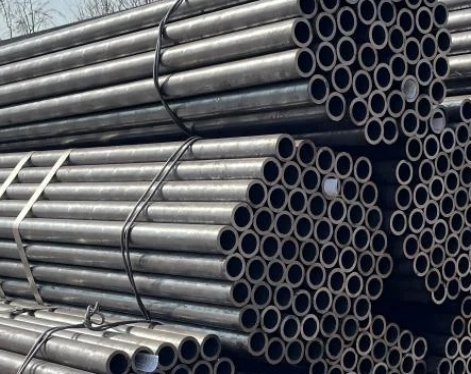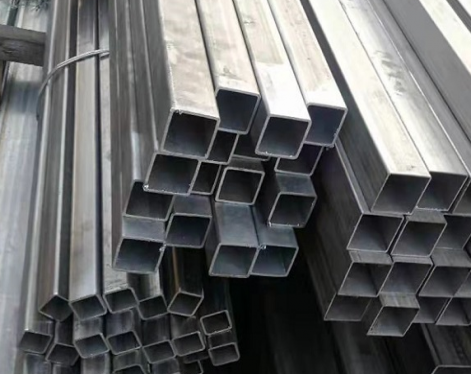The bending performance of boiler tubes is a crucial parameter in boiler design and manufacturing, directly impacting their safety, reliability, and service life. Boiler tubes are primarily used to transport high-temperature, high-pressure steam or water, often in harsh operating environments, necessitating high bending performance requirements. This article will discuss in detail the material properties of boiler tubes, factors influencing bending performance, testing methods, and practical considerations.
Material properties of boiler tubes
Boiler tubes are commonly manufactured from high-quality carbon steel, alloy steel, or stainless steel to ensure durability and performance. These materials provide exceptional resistance to high temperatures, corrosion, and internal pressure, making them ideal for long-term and stable operation in demanding boiler systems. The use of seamless steel pipe in boiler applications helps maintain structural integrity under extreme conditions, ensuring efficiency and safety in high-pressure environments. Specifically, the materials used for boiler tubes must possess the following characteristics:
1. High Strength: Boiler tubes are required to withstand high-temperature, high-pressure steam or water, so the material must possess sufficient strength to prevent cracking or deformation during operation.
2. Good Toughness: Boiler tubes may be subjected to shock and vibration during operation, so the material must possess good toughness to prevent brittle fracture.
3. Corrosion Resistance: Boiler tubes are exposed to high-temperature steam and water during operation, making them susceptible to corrosion. Therefore, the material must possess good corrosion resistance.
4. Good Weldability: Boiler tubes require welding during manufacturing and installation, so the material must possess good weldability to ensure the quality of the welded joints.
Factors affecting bending properties
The bending performance of boiler tubes is affected by a variety of factors, primarily the following:
1. Material selection: Boiler tubes made of different materials have varying bending properties. Generally speaking, alloy steel and stainless steel offer better bending properties than ordinary carbon steel, but they also come at a higher cost.
2. Wall thickness: Wall thickness significantly impacts the bending performance of boiler tubes. Thicker walls increase bending strength, but excessively thick walls increase weight and cost.
3. Bending Radius: The smaller the bending radius, the greater the stress on the boiler tube during bending, making it more susceptible to deformation or cracking. Therefore, in actual application, the appropriate bending radius should be selected based on the specific conditions of the boiler tube.
4. Bending Temperature: When bending boiler tubes at high temperatures, the material's plasticity increases, improving its bending properties. However, excessively high temperatures may cause changes in the material's microstructure, affecting its mechanical properties.
5. Bending Speed: Excessively fast bending speeds may cause cracking or deformation during bending, so an appropriate bending speed should be maintained.

Test method for bending properties
To ensure that the bending properties of boiler tubes meet design requirements, bending tests are typically required. Common testing methods include:
1. Cold Bend Test: This test involves bending boiler tubes at room temperature to uate their bending properties without heating. During the test, the tubes are bent to a specified angle and observed for cracks or deformation.
2. Hot Bend Test: This test involves bending boiler tubes at elevated temperatures to simulate their bending properties under high-temperature operating conditions. During the test, the tubes are heated to a specified temperature and then bent to observe for deformation and cracks.
3. Bend Fatigue Test: This test involves repeatedly bending the tubes to uate their fatigue resistance over long-term use. During the test, the tubes are repeatedly bent to a specified angle to observe for fatigue cracks or fractures.
Read more: The Role of Boiler Tubes in the Energy Industry
Material properties of boiler tubes
Boiler tubes are commonly manufactured from high-quality carbon steel, alloy steel, or stainless steel to ensure durability and performance. These materials provide exceptional resistance to high temperatures, corrosion, and internal pressure, making them ideal for long-term and stable operation in demanding boiler systems. The use of seamless steel pipe in boiler applications helps maintain structural integrity under extreme conditions, ensuring efficiency and safety in high-pressure environments. Specifically, the materials used for boiler tubes must possess the following characteristics:
1. High Strength: Boiler tubes are required to withstand high-temperature, high-pressure steam or water, so the material must possess sufficient strength to prevent cracking or deformation during operation.
2. Good Toughness: Boiler tubes may be subjected to shock and vibration during operation, so the material must possess good toughness to prevent brittle fracture.
3. Corrosion Resistance: Boiler tubes are exposed to high-temperature steam and water during operation, making them susceptible to corrosion. Therefore, the material must possess good corrosion resistance.
4. Good Weldability: Boiler tubes require welding during manufacturing and installation, so the material must possess good weldability to ensure the quality of the welded joints.
Factors affecting bending properties
The bending performance of boiler tubes is affected by a variety of factors, primarily the following:
1. Material selection: Boiler tubes made of different materials have varying bending properties. Generally speaking, alloy steel and stainless steel offer better bending properties than ordinary carbon steel, but they also come at a higher cost.
2. Wall thickness: Wall thickness significantly impacts the bending performance of boiler tubes. Thicker walls increase bending strength, but excessively thick walls increase weight and cost.
3. Bending Radius: The smaller the bending radius, the greater the stress on the boiler tube during bending, making it more susceptible to deformation or cracking. Therefore, in actual application, the appropriate bending radius should be selected based on the specific conditions of the boiler tube.
4. Bending Temperature: When bending boiler tubes at high temperatures, the material's plasticity increases, improving its bending properties. However, excessively high temperatures may cause changes in the material's microstructure, affecting its mechanical properties.
5. Bending Speed: Excessively fast bending speeds may cause cracking or deformation during bending, so an appropriate bending speed should be maintained.

Test method for bending properties
To ensure that the bending properties of boiler tubes meet design requirements, bending tests are typically required. Common testing methods include:
1. Cold Bend Test: This test involves bending boiler tubes at room temperature to uate their bending properties without heating. During the test, the tubes are bent to a specified angle and observed for cracks or deformation.
2. Hot Bend Test: This test involves bending boiler tubes at elevated temperatures to simulate their bending properties under high-temperature operating conditions. During the test, the tubes are heated to a specified temperature and then bent to observe for deformation and cracks.
3. Bend Fatigue Test: This test involves repeatedly bending the tubes to uate their fatigue resistance over long-term use. During the test, the tubes are repeatedly bent to a specified angle to observe for fatigue cracks or fractures.
Read more: The Role of Boiler Tubes in the Energy Industry









